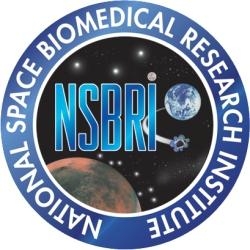Focus Is On Long Duration Space Exploration Missions
NASA's Human Research Program and the National Space Biomedical Research Institute (NSBRI) will fund 27 proposals to help answer questions about astronaut health and performance during future long duration missions beyond low Earth orbit. The selected proposals will investigate the impact of the space environment on various aspects of astronaut health, including visual impairment, behavioral health and performance, bone and muscle loss, cardiovascular alterations, human factors and performance, sensorimotor adaptation and the development and application of smart medical systems and technologies. All of the selected projects will contribute towards NASA's long-term plans, such as those planned for the journey to Mars.

The Program and NSBRI work together to address the practical problems of spaceflight that impact astronaut health and their research may provide knowledge and technologies that could improve human health and performance during space exploration and develop potential countermeasures for problems experienced during space travel. The organizations' goals are to help astronauts complete their challenging missions successfully and to preserve their long-term health.
These investigations will take place on the International Space Station as well as in ground-analog settings that mimic the spaceflight environment. Among those studies, Dr. Ashley Weaver, Assistant Professor in Biomedical Engineering at Wake Forest University, will measure changes in astronauts' vertebrae and spinal muscles before and after long duration spaceflight.
Dr. Lori Ploutz-Snyder, Lead Scientist for Exercise Physiology and Countermeasures at NASA Johnson Space Center, will characterize the relationship between gravitational dose and acute physiologic responses of the cardiovascular, cerebrovascular, ocular, muscular, and sensorimotor systems using parabolic flight.
Dr. Michael Bailey, Assistant Professor in Mechanical Engineering at the University of Washington in Seattle, will refine methods to treat kidney stones in crewmembers participating in long duration spaceflight missions.

The selected proposals are from 19 institutions in 11 states and will receive a total of approximately $12 million during a one- to three-year period. The 27 projects were selected from 131 proposals received in response to the research announcements entitled, "Research and Technology Development to Support Crew Health and Performance in Space Exploration Missions" and "NASA's Human Research Program Artificial Gravity Opportunity." Science and technology experts from academia, government and industry reviewed the proposals. NASA will manage 20 of the projects and NSBRI will manage seven. Ten of the investigators are new to both organizations, and two of the selected projects will be jointly funded by the Human Research Program and NASA's Space Biology Program.
The Human Research Program quantifies crew health and performance risks during spaceflight and develops strategies that mission planners and system developers can use to monitor and mitigate these risks. These studies often lead to advancements in understanding and treating illnesses in patients on Earth.
NSBRI is studying the health risks related to long-duration spaceflight and developing the technologies and countermeasures needed for human space exploration missions. The Institute's science, technology and career development projects take place at approximately 60 institutions across the United States.
(Source: NSBRI news release)
 Airborne 05.10.24: Icon Auction, Drunk MedEvac Pilot, Bell ALFA
Airborne 05.10.24: Icon Auction, Drunk MedEvac Pilot, Bell ALFA ANN's Daily Aero-Term (05.13.24): ILS PRM Approach
ANN's Daily Aero-Term (05.13.24): ILS PRM Approach ANN's Daily Aero-Linx (05.13.24)
ANN's Daily Aero-Linx (05.13.24) Airborne-NextGen 05.07.24: AI-Piloted F-16, AgEagle, 1st 2 WorldView Sats
Airborne-NextGen 05.07.24: AI-Piloted F-16, AgEagle, 1st 2 WorldView Sats Airborne 05.08.24: Denali Update, Dad-Daughter Gyro, Lake SAIB
Airborne 05.08.24: Denali Update, Dad-Daughter Gyro, Lake SAIB




